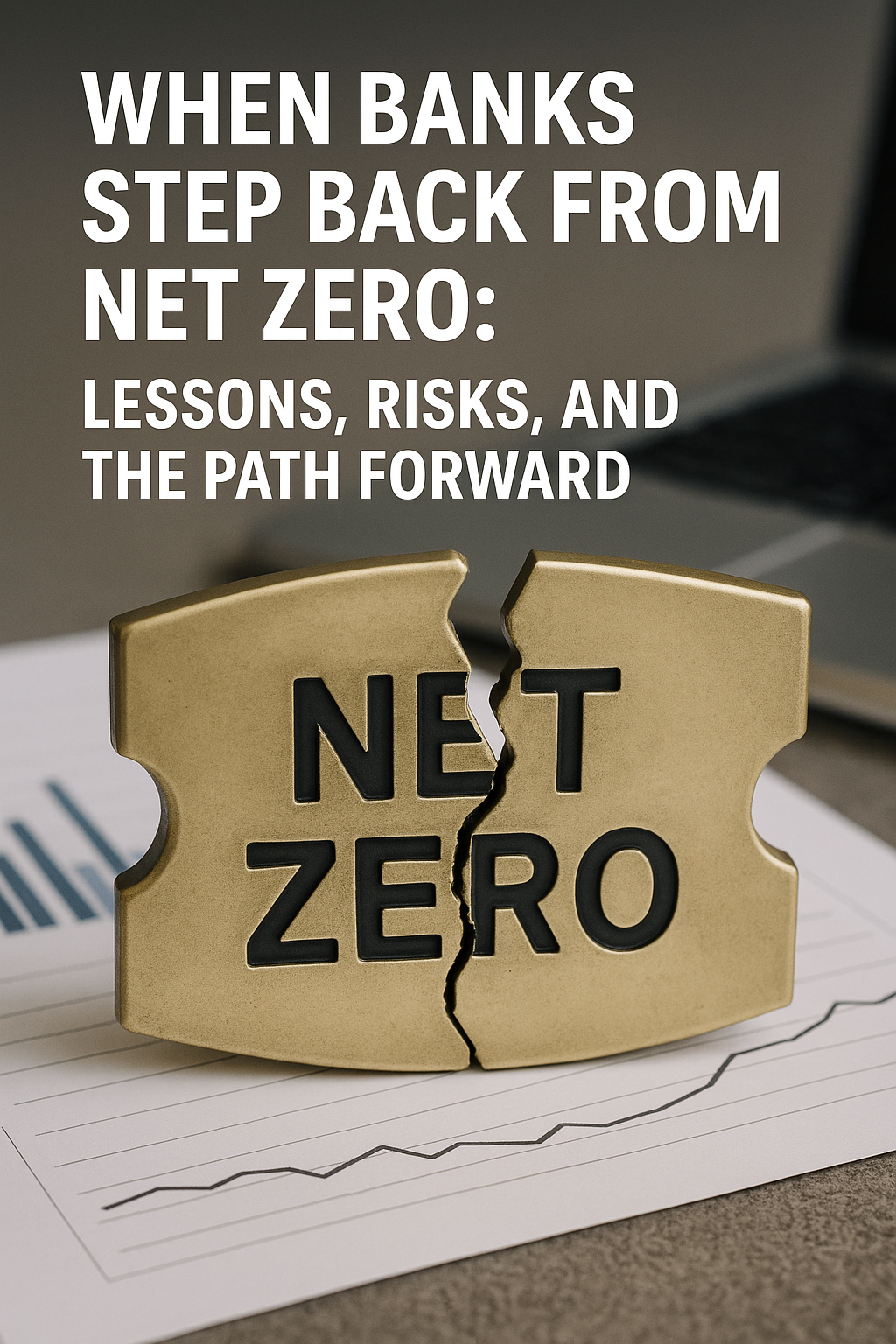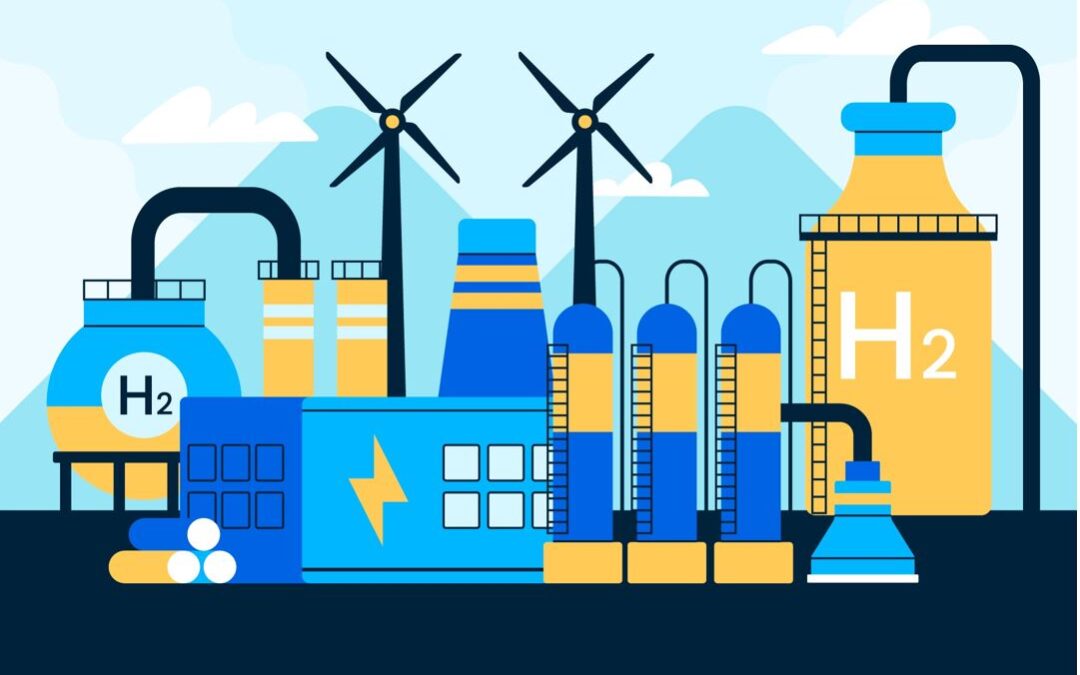The global finance sector is at a crossroads. In July 2025, HSBC became the first UK bank to withdraw from the Net Zero Banking Alliance (NZBA), soon followed by Barclays in August. These moves, echoing earlier exits by US giants such as JPMorgan and Citigroup, sent shockwaves across the financial and sustainability landscape. For many investors, clients, and regulators, the pressing question is: what happens when leading institutions step back from collective climate commitments?
The Retreat from Net Zero Banking
At HSBC’s Annual General Meeting in May 2025, shareholders challenged the bank’s decision to delay its 2030 net zero targets for operations and supply chains to 2050. Concerns included the downgrading of sustainability leadership roles and insufficient responses to mounting scientific evidence of climate risks.
Despite shareholder pressure, HSBC reaffirmed its 2050 target—only to withdraw from the NZBA weeks later. Barclays quickly followed, citing the exit of global peers as justification, even after launching internal programmes that had already achieved a 12% emissions reduction.
These decisions triggered client backlash, reputational damage, and critical coverage from Bloomberg, Reuters, and the Guardian, framing the moves as retreats from responsibility. For institutions once viewed as benchmarks of progress, the reputational costs were significant.
The Risks of Stepping Back
The consequences of withdrawal extend far beyond headlines:
- Regulatory risks: UK climate policies, such as the Emissions Trading Scheme, may intensify scrutiny of financial institutions.
- Reputational risks: NGOs and advocacy groups, including ShareAction and WWF, have already highlighted credibility gaps.
- Financial risks: The IPCC and IEA warn of trillions in potential stranded assets if global climate goals are missed. Meanwhile, clients increasingly favour institutions with strong ESG ratings and transparent net zero pathways.
By contrast, MSCI’s 2025 analysis shows that banks with robust ESG integration outperform peers by 10–20% and benefit from preferential access to green bond financing.
Lessons from Global Precedents
There are clear reminders that accountability and ambition can drive progress. The landmark Milieudefensie v. Shell ruling in 2021 legally bound Shell to a 45% emissions reduction by 2030, establishing precedent for corporate climate accountability. Similarly, JPMorgan’s 2024 strategy shift—reducing fossil fuel exposure by 15% under investor pressure—demonstrated that sustained engagement can steer institutions towards meaningful change.
Technology and Innovation as the Bridge
While some banks retreat, technological innovation continues to advance. Recent trials highlight the potential of smart systems and integrated solutions:
- Digital twins (Schneider Electric & Imperial College London, 2025): delivering 28% efficiency gains and 35% waste reductions.
- AI for smart grids (Fernández et al., 2025): reducing peak loads by 22% through deep reinforcement learning.
- Water–energy nexus tools (UCL & UK Centre for Ecology & Hydrology, 2025): cutting resource intensity by 20% in smart cities.
- Nature-based solutions (Global Nature Finance Alliance, 2025): providing offsets 15–30% cheaper while boosting biodiversity by 18%.
These breakthroughs show that while technology is no silver bullet, it is a powerful enabler of both climate and financial resilience.
How CAESL Supports Institutions on the Net Zero Journey
At Chamberlains Aqua & Energy Systems Limited (CAESL), we help financial and corporate institutions stay on track with their net zero ambitions, even as alliances shift. Our services include:
- Support on ISO 14064 GHG accounting and lifecycle assessments for transparent reporting.
- Energy Management Systems (EnMS) and EPC+ audits to uncover significant, financially tangible efficiency gains.
- AI and IoT integrations to deliver dramatic emissions reductions across operations.
- TASHEX®, our patented solar panel add-on technology, improving solar power output by up to 30%.
- Water efficiency solutions such as greywater systems and rainwater harvesting, alongside renewable energy solutions, to support broader sustainability strategies.
By combining technical expertise with practical innovation, we provide the tools organisations need to align with frameworks such as the Task Force on Climate-related Financial Disclosures (TCFD) and to deliver measurable outcomes.
Conclusion
The exits of HSBC and Barclays from the NZBA highlight the challenges of sustaining collective climate action in the financial sector. Yet the lesson is not one of retreat—it is a reminder that ambition, transparency, and innovation are essential for progress.
Banks and businesses alike can still achieve meaningful climate goals by harnessing the right tools and strategies. CAESL remains committed to supporting institutions navigating this complex landscape, ensuring that net zero targets are more than just pledges—they are pathways to resilience, trust, and long-term value.
This article was prepared by our intern, Megha Kabsuri.
References
- Bloomberg (2025). HSBC Exits Net Zero Banking Alliance, Sparks Investor Concerns.
- Reuters (2025). Barclays Follows HSBC in NZBA Withdrawal.
- The Guardian (2025). UK Banks Step Back from Net Zero Commitments.
- ShareAction (2025). Investor Briefing on Credibility Gaps in Banking Sector Climate Plans.
- WWF (2025). Banks and Climate Accountability Report.
- IPCC (2023). Climate Change 2023: Synthesis Report.
- International Energy Agency (IEA, 2024). Net Zero by 2050 Roadmap – Updated Analysis.
- MSCI (2025). ESG Integration and Financial Performance in Banking.
- Milieudefensie v. Shell (2021). Hague District Court Ruling.
- JPMorgan (2024). Annual Report – Climate Strategy and Fossil Fuel Exposure Reduction.
- Schneider Electric & Imperial College London (2025). Digital Twin Trials in Energy Efficiency.
- Fernández, J. et al. (2025). Deep Reinforcement Learning for Smart Grids.
- UCL & UK Centre for Ecology & Hydrology (2025). Water–Energy Nexus Modelling in Smart Cities.
- Global Nature Finance Alliance (2025). Nature-Based Solutions for Climate Resilience.




